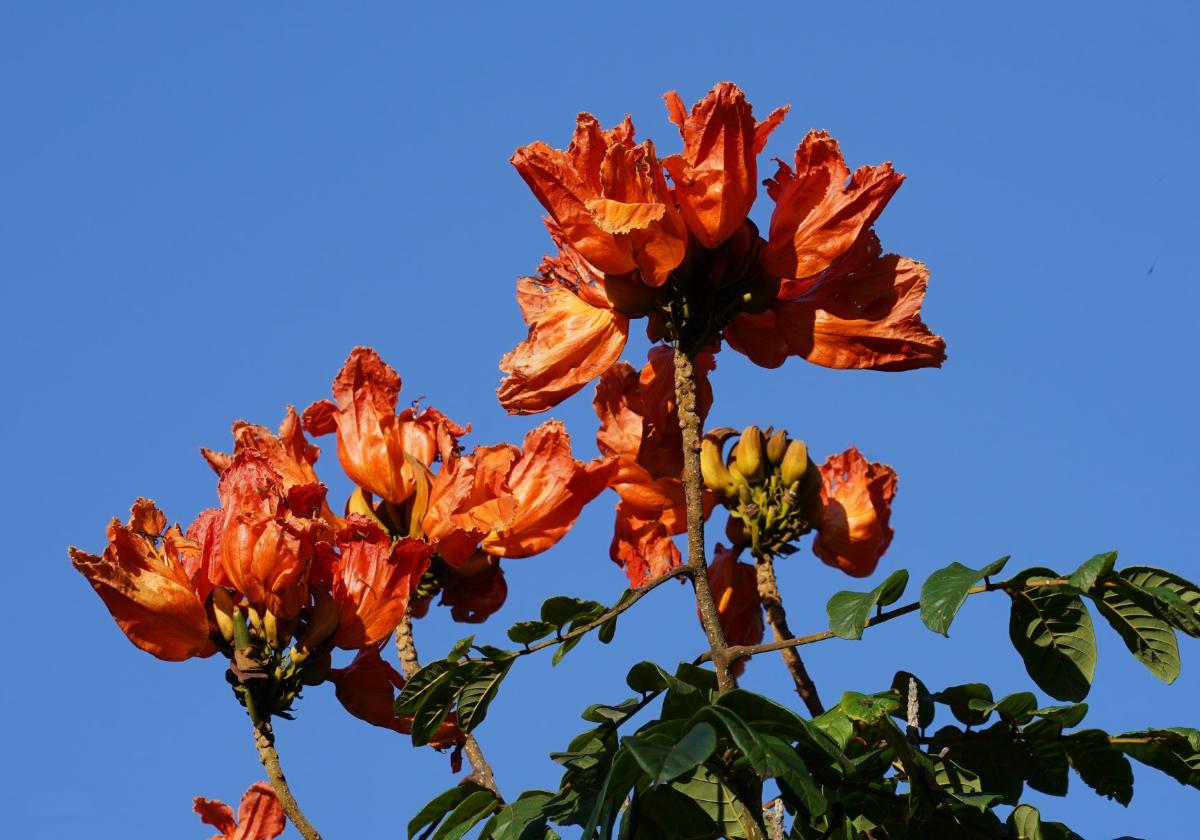Recommended for your garden in southern Spain: African tulip tree
The African tulip tree, Spathodea campanulata, originates from West Africa and is a large tree up to 30 metres tall
Denise Bush
Malaga
Friday, 13 June 2025, 10:50
The African tulip tree, Spathodea campanulata, originates from West Africa and is a large suckering tree up to 30 metres tall. It has a wide, many-branched crown which makes it an ideal shade tree and is semi-evergreen, dropping some of its leaves during dry spells. The leaflets are arranged in pairs up a central rib, like a feather, and are a dark green.
It will flower sporadically throughout the year but the main flowering season is during the summer when it will produce bunches of large red or orange, tulip-shaped blooms at the end of the branches. There are yellow varieties but they are not easily available. Spathodea campanulata is not entirely drought resistant and will need regular watering during dry spells to keep it healthy. It is not cold hardy or fussy about what type of soil.
The blooms are full of nectar and attract lots of pollinating insects.
When the flowers are over, they can create a bit of a mess and be slippery to walk on, a similar problem that is experienced with the jacarandas that are out at the moment. Another disadvantage with the African tulip tree is that it has spreading roots, some of them very large and on the surface, which sucker and produce a lot of weedy growth. It is best not planted near to buildings or paths for this reason.
After flowering, green, canoe-shaped seed pods develop which turn dark brown and black as they ripen. Once fully mature, the pod splits and releases hundreds of small, winged seeds. In ideal climates these can become a nuisance with seedlings popping up in unexpected places.
Other common names include squirrel tree, flame of the forest and the unexplainable 'donkey pew pew'.
In West Africa, a dye is obtained from spent flowers and the wood, which is soft and not very strong, used to make boxes and crates.


Comentar es una ventaja exclusiva para registrados
¿Ya eres registrado?
Inicia sesiónNecesitas ser suscriptor para poder votar.